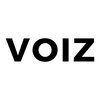Filter interviews by
Selectsys Interview Questions and Answers
8 Interview questions
Journal entry for a loan involves debiting the cash account and crediting the loan payable account.
Debit the cash account to increase the cash balance
Credit the loan payable account to increase the liability
Include the loan amount and any applicable interest in the journal entry
Ensure the entry follows the double-entry accounting system
Risk refers to the possibility of loss or harm occurring due to uncertain events or circumstances.
Risk is an inherent part of any business or activity.
It can be managed through various strategies such as risk avoidance, risk reduction, risk transfer, and risk acceptance.
Examples of risks include financial risks, operational risks, strategic risks, and reputational risks.
Risk assessment is a crucial process in iden...
Insurance is a contract between an individual and an insurance company to protect against financial loss due to unforeseen events.
Insurance provides financial protection against risks such as accidents, illness, and natural disasters.
The insured pays a premium to the insurance company in exchange for coverage.
Types of insurance include health, life, auto, home, and travel insurance.
Insurance policies have terms an...
Insurance is a contract between an individual or entity and an insurance company to protect against financial loss.
Insurance provides financial protection against unexpected events or losses.
Premiums are paid to the insurance company in exchange for coverage.
Types of insurance include health, life, auto, home, and business.
Insurance policies have terms and conditions that must be followed to receive benefits.
Insur...
Insurance is a contract between an individual and an insurance company to provide financial protection against potential losses.
Insurance is a risk management tool that helps individuals and businesses protect themselves against financial losses.
It works on the principle of pooling risks, where a large number of people contribute premiums to create a fund that can be used to compensate for losses.
There are various...
Network and system issues are common in any organization. It is important to have a proactive approach to identify and resolve them.
Regular monitoring of network and system performance
Implementing security measures to prevent cyber attacks
Having a backup and disaster recovery plan in place
Providing regular training to employees on best practices for network and system usage
A system administrator is responsible for managing and maintaining computer systems and networks.
Installing and configuring software and hardware
Monitoring system performance and troubleshooting issues
Managing user accounts and permissions
Backing up and restoring data
Ensuring system security and implementing security measures
Updating and upgrading systems
Documenting system configurations and procedures
There are various types of insurances such as life, health, auto, home, travel, and business insurance.
Life insurance provides financial support to the family of the policyholder in case of their death.
Health insurance covers medical expenses of the policyholder and their family.
Auto insurance covers damages caused to the insured vehicle and third-party liability.
Home insurance covers damages caused to the insured...
Selectsys Interview Experiences
19 interviews found
I appeared for an interview in Mar 2025, where I was asked the following questions.
- Q1. Self intro and some of the questions from the written test.
- Q2. What is insurance, excel, shortcuts used in excel and what is premium.
- Ans.
Insurance is a financial arrangement that provides protection against potential future losses in exchange for regular premium payments.
Definition: Insurance is a contract where an individual or entity receives financial protection against losses from an insurance company.
Types of Insurance: Common types include health, auto, life, and property insurance, each serving different purposes.
Premium: The premium is the amoun...
Interview Preparation Tips
I appeared for an interview in Apr 2025, where I was asked the following questions.
- Q1. What do you know about company?
- Q2. Where do you want to see yourself after 5years?
I appeared for an interview in Mar 2025, where I was asked the following questions.
- Q1. Why to leave the previous company
- Ans.
I left my previous company to pursue new challenges and opportunities for growth in my career.
I was seeking a role that offered more responsibility and the chance to lead projects.
The company was undergoing significant restructuring, which limited my growth opportunities.
I wanted to work in a more dynamic environment that aligned with my career goals.
I had developed my skills to a point where I felt ready for a new cha...
- Q2. Why to hire me
- Q3. What is your salary expectations
30 questions 30 Marks
(1 Question)
- Q1. Minimum speed 21wpm
(1 Question)
- Q1. About your self
(1 Question)
- Q1. Company policies

(1 Question)
- Q1. Self Introduction , etc...
(1 Question)
- Q1. General Questions etc..
(1 Question)
- Q1. Based on Resume Questions were asked
I applied via Referral and was interviewed before Mar 2023. There were 3 interview rounds.
Basics of aptitude,
Basic of English grammar,
(1 Question)
- Q1. Self introduction
(1 Question)
- Q1. About insurance
I appeared for an interview before Jun 2024, where I was asked the following questions.
- Q1. Backlinks improvement, Rankings
- Q2. Social media , sbm submission
I applied via Naukri.com and was interviewed before Aug 2023. There were 2 interview rounds.
Mathes and verbal to be conducted
(4 Questions)
- Q1. About your self
- Q2. Insurance related basic uestions
- Q3. About experince
- Q4. About last project
I appeared for an interview before Jan 2024.
A general understanding of the English language.
(2 Questions)
- Q1. Some topics in english
- Q2. Introduction
Interview Preparation Tips
(1 Question)
- Q1. About Your Self
- Ans.
Experienced Senior Process Associate with a strong background in process optimization and team leadership, dedicated to driving efficiency.
Over 5 years of experience in process management, focusing on improving operational efficiency.
Led a team of 10 in a project that reduced processing time by 30%, resulting in significant cost savings.
Skilled in data analysis and reporting, utilizing tools like Excel and Tableau to p...
Top trending discussions






Selectsys Interview FAQs
The duration of Selectsys interview process can vary, but typically it takes about less than 2 weeks to complete.
Tell us how to improve this page.
Selectsys Interviews By Designations
- Selectsys Process Associate Interview Questions
- Selectsys Senior Process Associate Interview Questions
- Selectsys Network Administrator Interview Questions
- Selectsys Account Executive 1 Interview Questions
- Selectsys Business Accountant Interview Questions
- Selectsys Trainee Process Associate Interview Questions
- Selectsys SEO Specialist Interview Questions
Interview Questions for Popular Designations
- Process Associate Interview Questions
- Analyst Interview Questions
- Business Analyst Interview Questions
- Graduate Engineer Trainee (Get) Interview Questions
- Java Developer Interview Questions
- Senior Software Engineer Interview Questions
- Data Analyst Interview Questions
- Manager Interview Questions
- Show more
Overall Interview Experience Rating
based on 12 interview experiences
Difficulty level
Duration
Interview Questions from Similar Companies
Selectsys Reviews and Ratings
based on 191 reviews
Rating in categories
|
Process Associate
312
salaries
| ₹1.4 L/yr - ₹3.2 L/yr |
|
Senior Process Associate
127
salaries
| ₹1.8 L/yr - ₹4.2 L/yr |
|
Business Accountant
87
salaries
| ₹2.4 L/yr - ₹5 L/yr |
|
Senior Business Accountant
24
salaries
| ₹3.5 L/yr - ₹6.6 L/yr |
|
Team Lead
22
salaries
| ₹4.6 L/yr - ₹9 L/yr |

HRH Next Services

Data Entry

Magus Customer Dialog

Greet Technologies
- Home >
- Interviews >
- Selectsys Interview Questions













